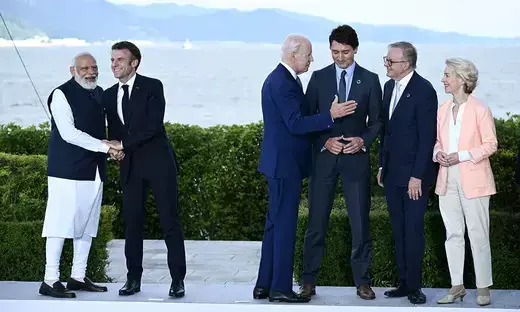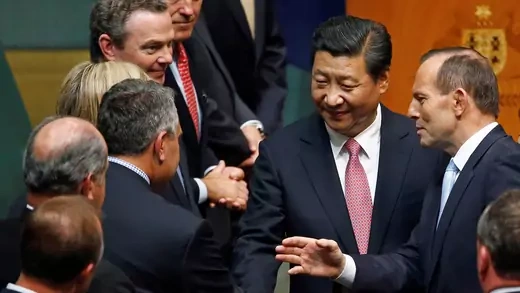- Iran
- Israel-Hamas
-
Topics
FeaturedIntroduction Over the last several decades, governments have collectively pledged to slow global warming. But despite intensified diplomacy, the world is already facing the consequences of climate…
-
Regions
FeaturedIntroduction Throughout its decades of independence, Myanmar has struggled with military rule, civil war, poor governance, and widespread poverty. A military coup in February 2021 dashed hopes for…
Backgrounder by Lindsay Maizland January 31, 2022
-
Explainers
FeaturedDuring the 2020 presidential campaign, Joe Biden promised that his administration would make a “historic effort” to reduce long-running racial inequities in health. Tobacco use—the leading cause of p…
Interactive by Olivia Angelino, Thomas J. Bollyky, Elle Ruggiero and Isabella Turilli February 1, 2023 Global Health Program
-
Research & Analysis
Featured
Terrorism and Counterterrorism
Violence around U.S. elections in 2024 could not only destabilize American democracy but also embolden autocrats across the world. Jacob Ware recommends that political leaders take steps to shore up civic trust and remove the opportunity for violence ahead of the 2024 election season.Contingency Planning Memorandum by Jacob Ware April 17, 2024 Center for Preventive Action
-
Communities
Featured
Webinar with Carolyn Kissane and Irina A. Faskianos April 12, 2023 Academic and Higher Education Webinars
-
Events
FeaturedJohn Kerry discusses his work as U.S. special presidential envoy for climate, the challenges the United States faces, and the Biden administration’s priorities as it continues to address climate chan…
Virtual Event with John F. Kerry and Michael Froman March 1, 2024
- Related Sites
- More
September 12, 2016
G20 (Group of Twenty)Steven A. Tananbaum Senior Fellow for International Economics Robert Kahn argues that at the Group of Twenty (G20) Summit in Hangzhou, China, leaders called for governments to do more to support growth, but offered little in the way of new measures. Quietly, and away from the G20 spotlight, fiscal policy is becoming more expansionary, but current policies are unlikely to provide a meaningful boost to growth or soothe rising populist pressures.
May 4, 2016
VenezuelaBottom Line: The crisis in Venezuela continues to escalate, with no recovery or relief in sight. A messy and chaotic default looms, and the rescue will likely involve a tough adjustment program, larg…
June 27, 2023
World OrderSessions were held on the future of AI governance, accountability for war crimes in the invasion of Ukraine, reworking the Sustainable Development Goals and the global development model, revitalizing…

June 2, 2016
G20 (Group of Twenty)Overview China's leadership of the Group of Twenty (G20) in 2016 comes at a moment when the role of the G20 itself is being challenged by disappointingly slow global growth and a trend toward regi…

December 2, 2016
Financial MarketsSteven A. Tananbaum Senior Fellow for International Economics Robert Kahn writes that financial markets rallied following the U.S. election, on hopes that President-Elect Donald J. Trump’s fiscal stimulus and deregulation initiatives would spur corporate profits and growth. Perhaps so, but a strong case could be made for the opposite: that Trump’s economic agenda will prove disruptive to trade and growth, face growing headwinds in Congress, and exert a contractionary impact on the U.S. economy.
 Online Store
Online Store